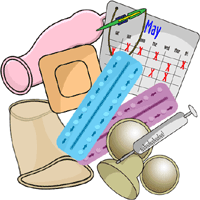Therefore, it stands to reason that if the bishops, who voted to approve the document 220-11, with one abstention, are going to give this teaching the status it deserves, they must have programs and policies in place in their individual dioceses to put couples in a position to succeed in using NFP, not to mention convincing them it is the moral way to time, space, and limit the number of children they choose to have. After all, one does not have to reject the affirmative answer Catholic couples must give as part of their nuptial vows, when asked, "Will you accept children lovingly from God, and bring them up according to the law of Christ and his Church?" or the basic understanding of marriage as set forth in the Code of Canon Law, canon 1055 §1: "The matrimonial covenant, by which a man and a woman establish between themselves a partnership of the whole of life and which is ordered by its nature to the good of the spouses and the procreation and education of offspring, has been raised by Christ the Lord to the dignity of a sacrament between the baptized," to use artificial contraception. Further, one does not have to dissent from the moral norm that sexual activity is only morally permissible within marriage to use contraceptives.

Among artificial methods, there are different moral issues involved. With certain methods, like birth control pills, there are moral concerns over and above contraception. The pill often prevents pregnancy by acting as a chemical abortifacient, just like the RU 486 "morning after" pill. The abortifacient potential, along with the long term effect on the health of women should be reason enough for couples not to use this method. As far as condoms and other blocking methods are concerned, the issue becomes whether such genital contact is actually sexual intercourse, etc. These issues, while important to mention, are not the core of what I am advocating in this post.
As regards NFP we have a threefold task. The first task is communicating effectively why couples should use NFP, the moral attitude and intention that has to underlie any decision to use any method of NFP. The second task gets beyond the whys to the hows of practicing the various methods of NFP (i.e., Billings Ovulation, Creighton Model, Sympto-thermal) and calls upon bishops to dedicate the necessary resources to this important task. Thirdly, pastoral support for couples who choose to faithfully live the vocation to which God calls them, which means getting beyond the whys and hows, beyond the cheerleading and mechanics, to the reality and difficulties couples face in seeking to live in fidelity to God's law.
Natural Family Planning cannot be employed by couples as just another form of contraception. Properly speaking, NFP, when practiced with the correct intention, is not contraception. Moral acts have three components: the object chosen, either a true or apparent good; the intention of the subject who acts, that is, the purpose for which the subject performs the act; and the circumstances of the act, which include its consequences. If the intention behind using natural methods of family planning is the same as that behind the decision to use artificial contraception, the goodness of use NFP is forfeited. Of course, the object is also at issue as regards how couples seek to regulate the timing, number, and spacing of children.
Despite the overwhelming number of bishops who voted in favor of this document, the vast majority of dioceses only require couples preparing for marriage to take a 3 hour introduction to NFP class. This course basically tells couples that none of the current methods of NFP is the rhythm method, why Catholic couples are morally obligated not to use contraceptives, and, more objectively, why it is actually good for couples not to contracept. These courses do not instruct couples on how NFP is successfully practiced. In order to do that couples have to enroll in and take a full course of instruction with a certified NFP instructor. Bishop Olmsted in Phoenix, for one, has recently put a policy in place requiring all who want to be married in the Church in his diocese to take the full-course of NFP instruction. One of the practical challenges that arise from issuing this pastoral requirement is that most dioceses would not have enough instructors to teach all the couples.

As one charged with preparing couples for the sacrament of matrimony, I teach, encourage, and tell couples that the Church requires and expects them not to use artificial contraception and explain what is required of them. I have couples read Humane Vitae, discuss it with me and the other couples I am preparing at the time. I address criticisms the couples have in accepting this admittedly difficult teaching, of which Pope Paul VI writes in Humane Vitae, number 20, "The teaching of the Church regarding the proper regulation of birth is a promulgation of the law of God Himself. And yet there is no doubt that to many it will appear not merely difficult but even impossible to observe. Now it is true that like all good things which are outstanding for their nobility and for the benefits which they confer on men, so this law demands from individual men and women, from families and from human society, a resolute purpose and great endurance. Indeed it cannot be observed unless God comes to their help with the grace by which the goodwill of men is sustained and strengthened. But to those who consider this matter diligently it will indeed be evident that this endurance enhances man's dignity and confers benefits on human society."
The explicit need for God's grace to live chastely, even within marriage, can be a privileged way of teaching about God's love, God's mercy, and how we receive all that God yearns to give us, which is nothing less than His own divine life, in and through the sacraments. Pope Paul VI, again in Humane Vitae, number 25, writes directly to married couples "let them implore the help of God with unremitting prayer and, most of all, let them draw grace and charity from that unfailing fount which is the Eucharist. If, however, sin still exercises its hold over them, they are not to lose heart. Rather must they, humble and persevering, have recourse to the mercy of God, abundantly bestowed in the Sacrament of Penance."
The problem with not requiring couples to take the full course of instruction is that even couples who want to use NFP cannot do it from the get-go because they have not received instruction from a certified instructor far enough in advance. The number of such couples is not insignificant among the couples I have prepared. Pastorally, what do you tell them? Not to have intercourse on their honeymoon, or at all until they can start using NFP, which will be several months if they begin instruction right away? Simple answer: No, that is not the answer.

Relying on Amy Wellborn's paraphrase, Archbishop Naumann of Kansas City said, at the press conference during which Married Love and the Gift of Life was presented and discussed with the media, "that it was a priest's responsibility to catechize, say, a couple who was contracepting, present them with the truth, and if, after hearing that truth presented to them, they continued to contracept, no, they shouldn't receive Communion. The point of distinction being that the Church has the responsibility to present its own teaching, clearly and fully." I agree to some extent with what the Archbishop is saying, putting the burden in the first instance, on the pastor. However, before banning contracepting couples from communion, or even discussing such a serious ban, he and his brother bishops must insure that they have policies in place that assist couples under their care to faithfully practice what God requires and the Church teaches by committing resources to support their policies and requirements. Also, before taking aim at those under their pastoral care, individual bishops must insure their pastors, other priests, and deacons, as well as catechists and, in the case of marriage preparation, mentor couples, both live and teach the truth. Pastors must give support to couples in their care who seek to live in accordance with what the Church teaches, they must also exhort, encourage, and work with those who do not. In short, all the barriers that currently exist must be removed prior to any discussion of banning the contracepting couples from communion.
His Holiness, Pope Paul VI, in the final section of Humane Vitae writes: "Venerable brothers, beloved sons, all men of good will, great indeed is the work of education, of progress and of charity to which We now summon all of you."


I'd be interested in your views on the bishops statement regarding homosexuality and how you seetheir revised statement about it - affirming the inclination as not sinful yet teaching that a homosexual ought to abstain. How do you see that?
ReplyDeleteI liked your treatment here of NFP and lived without birth control at all for twelve years believing God opened and closed the womb. NFP always seemed to me as though it was focused still on limiting families and in that sense I couldn't understand why artificial contraceptives were somehow worse as long as an embryo was not at risk (as you mentioned about the pill).
Any thoughts?
Julie
Julie:
ReplyDeleteI plan to address the document on homosexuality in a seperate posting. I will state that I think the decision not to include any homosexuals in the discussion was a big mistake. Like Luciani's criticism of Colombo, without their input the document remains too abstract because it does not take into account their real-life struggles.
Also, I serve in an urban parish in which we have a number of homosexual parishoners. They bring many gifts and a lot of commitment to our community. On the whole and in a word, I am ambivalent. But, again, more later.
As to NFP you hit the nail-on-the-head as far as how most people see it. U.S. Catholics, like most of their fellow citizens, are a pretty pragmatic bunch. If NFP is just another form of contraception, which is what is almost taught, then why are artificial methods that do not present other moral issues, like condoms, forbidden?
In all honesty if NFP is presented in that way and understood to be one contraceptive option among many, there is no logical, therefore, no moral answer to the question. By the same token, Catholics are not required to have every possible child. Even Humane Vitae tells people they have a moral obligation to limit the number of children they have to the number they can emotionally sustain and economically support. There are other moral criteria couples also bring to bear on the number and spacing of children.
Thanks Scott. I look forward to your further comments on both topics. :)
ReplyDeleteJulie